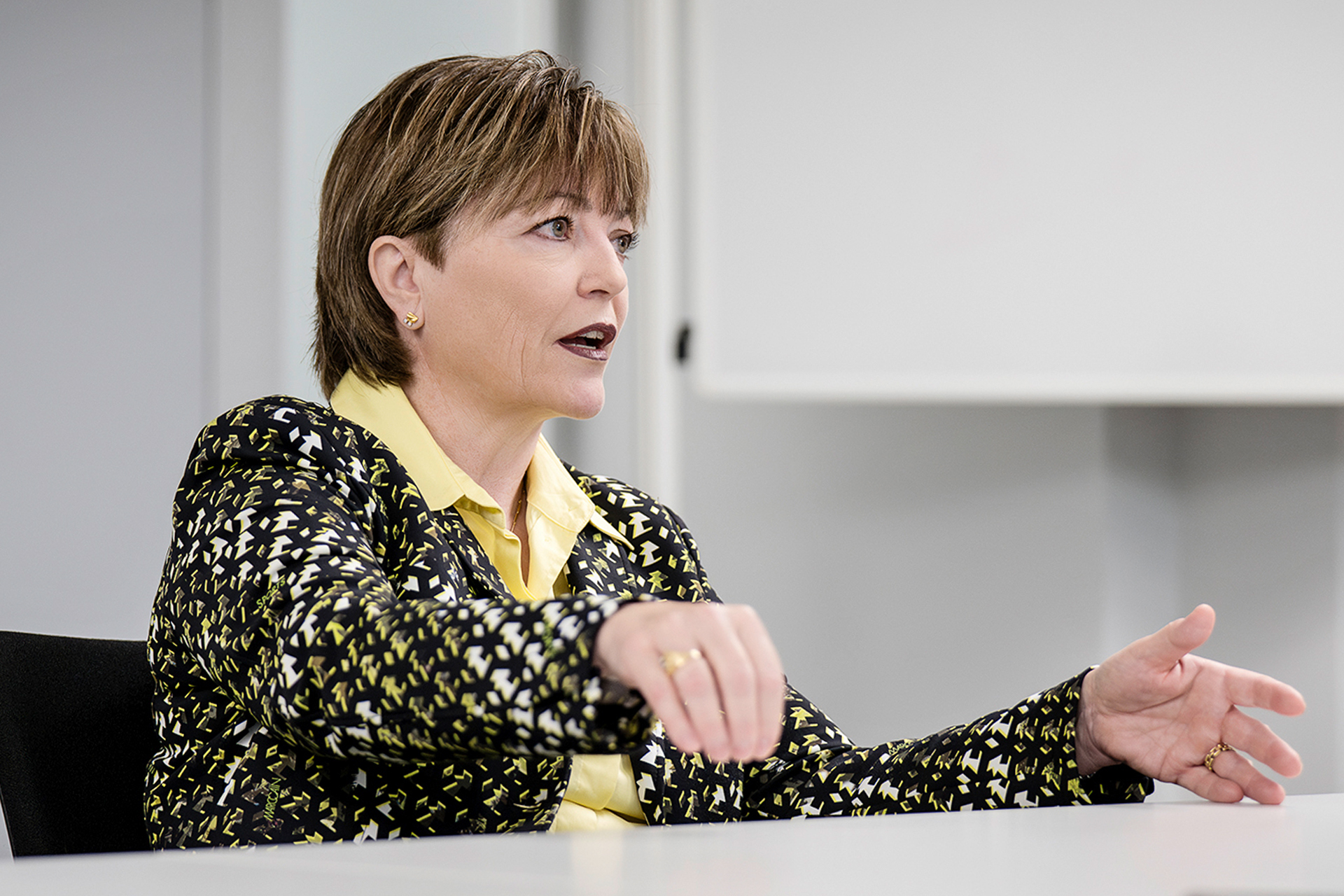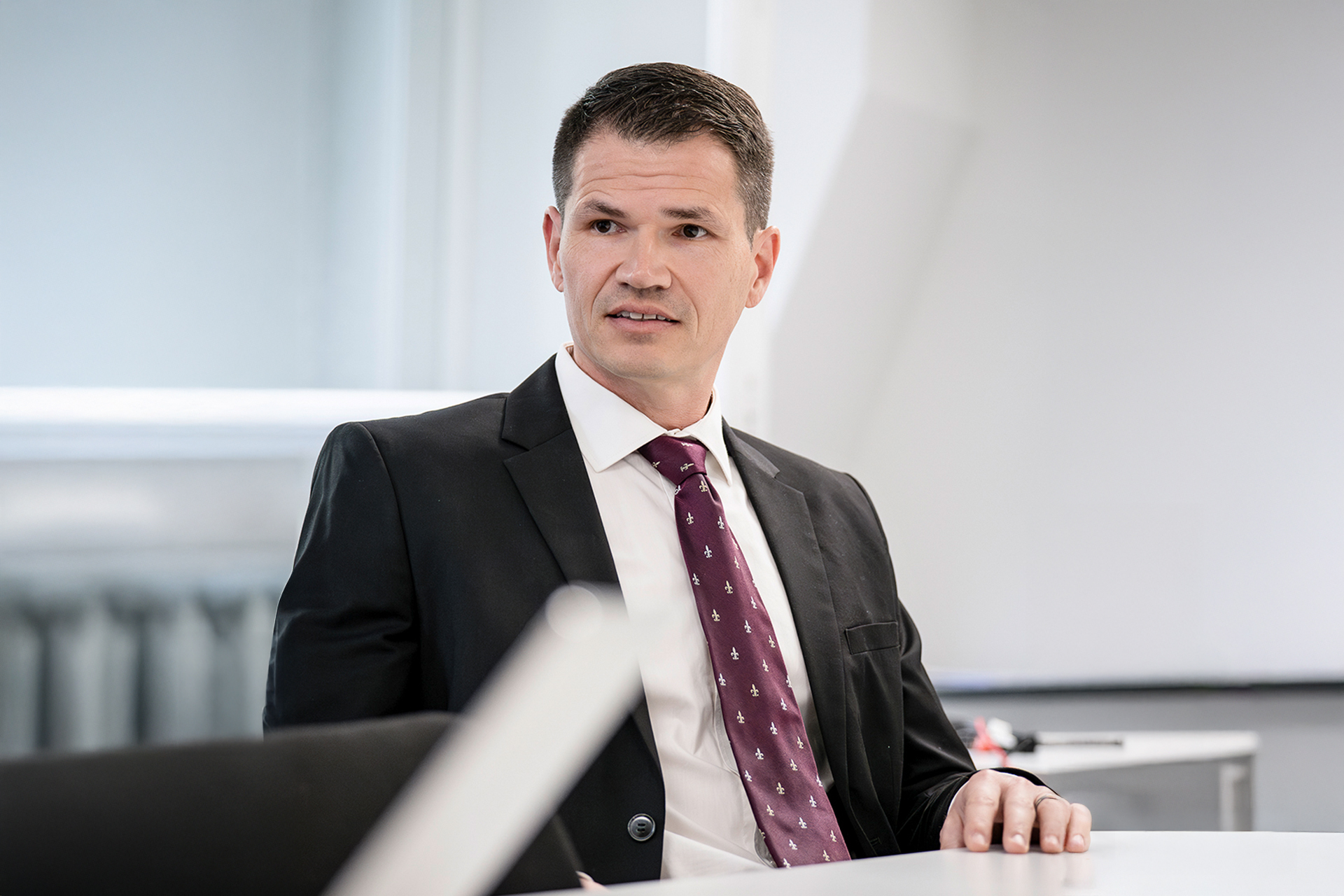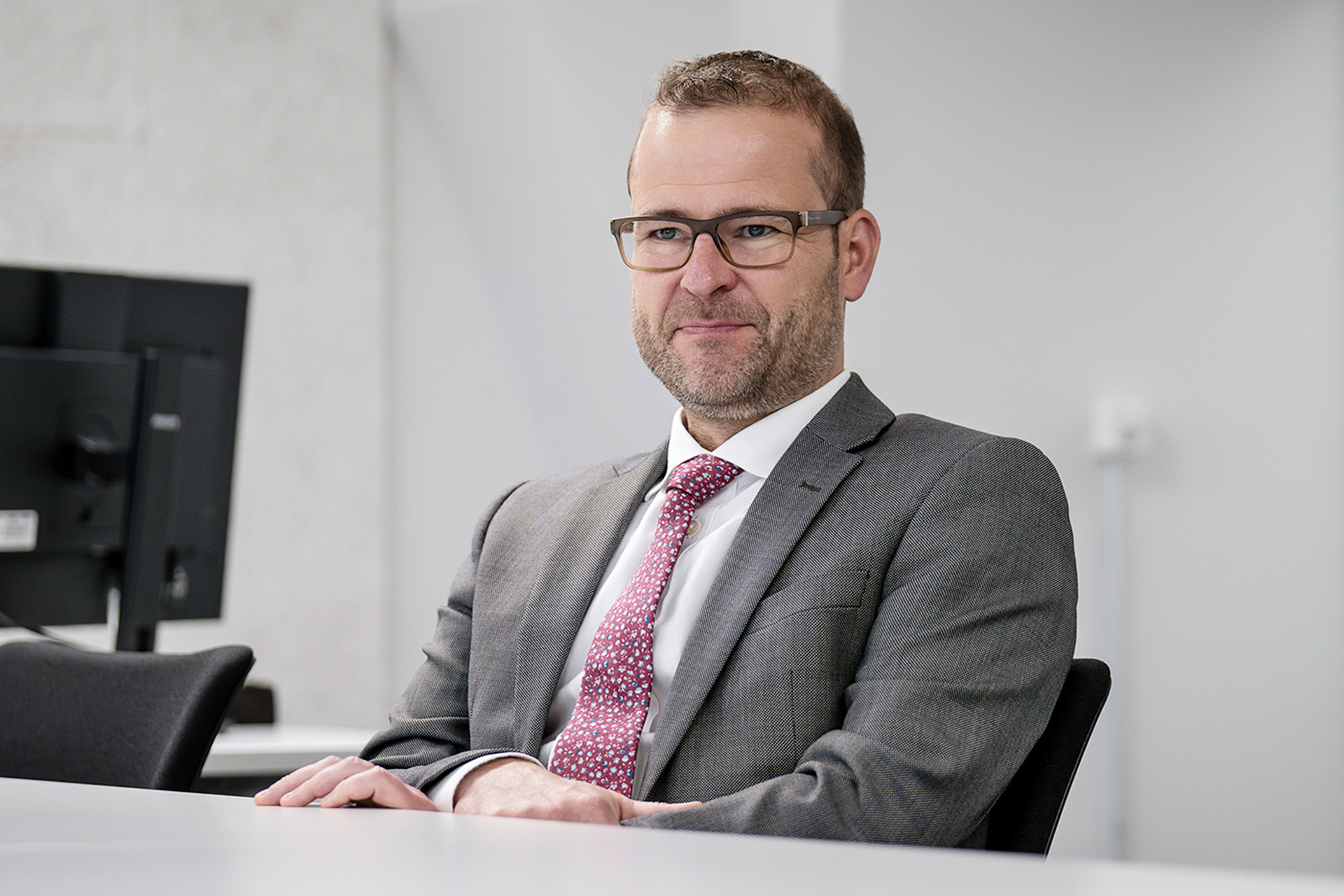Investigated
Penal Division “We have to be fair, not popular”.
Prosecuting violations of therapeutic products legislation is one of Swissmedic's core processes alongside licensing, authorisation procedures and market surveillance. It is an area where the Penal Division of the Legal Affairs Sector has a key role to play. We spoke to Judith Voney, Raphael Zbinden and Fabien Morand.
What sort of cases does the Penal Division deal with?
Judith Voney: Our team prosecutes and assesses a wide range of offences against therapeutic products legislation, such as illegal wholesale trading or trading abroad, illegal manufacturing, falsification, breaching advertising rules for medicinal products and placing non-conforming medical devices on the market. The law recognises different degrees of severity: contraventions, misdemeanours and felonies.
Fabien Morand: There are no bounds to human ingenuity when it comes to earning money, as abortion pills sold via TikTok, medicinal products that falsely promise to cure dizziness or medical devices that are less effective than voodoo medicine all prove.
Raphael Zbinden: Or to put it in more abstract terms, we prosecute activities that require a licence but are taking place without one or outside the terms of that licence.
How does Swissmedic find out about such cases?
Judith Voney: Firstly from other Divisions within the Agency, which report offences discovered in the course of their monitoring and enforcement activities. But we also get tip-offs from partners outside Swissmedic, such as the Federal Office for Customs and Border Security (FOCBS), whistle-blowers in pharmaceutical companies and cantonal healthcare supervisory authorities.
Fabien Morand: Alternatively, consumers contact us through the Swissmedic website and report things such as “slimming teas” that haven’t done them any good. After that, Swissmedic can make test purchases, test the products in its laboratory and commence the necessary legal action. It’s not uncommon for our lab to find unauthorised active substances in these products, for example.
Talking of advertising claims, isn’t this an area where Swissmedic’s perceived pettiness is likely to make it unpopular?
Raphael Zbinden: We’re an enforcement authority, so we have to be fair, not popular. A medicine that is incorrectly advertised as a treatment for cancer can be dangerous, especially if patients don’t take effective treatments as a result.
What action can the Penal Division take?
Judith Voney: Offences under therapeutic products legislation are classed as offences prosecuted ex officio – in other words, criminal justice authorities are obliged to commence proceedings if they have grounds for reasonable suspicion. In particularly straightforward cases or exceptional cases where the culpability and consequences of the offence are minor, we can apply the principle of discretion and forego prosecution.
How often does Swissmedic conduct house searches and what’s the procedure?
Fabien Morand: We generally visit private property early in the morning, and since we obviously don’t let the occupants know we’re coming, we sometimes find them in their pyjamas. The police always come with us, since we don’t know what to expect. As well as computer forensics investigators, the team may include other Swissmedic experts. Having specialists with us is particularly useful when we’re searching illegal laboratories because opening certain containers could be life-threatening, for example if they contain substances such as fentanyl.
Raphael Zbinden: We conducted something like six searches in 2023. For my own part, I’ve been on around 50 house searches. They’re always highly effective because we know what we’re looking for and go about them in a targeted, professional way. In addition to therapeutic products, we also seize accounts and documents that could provide evidence of illegal imports, sales and profits.



What does Swissmedic do to ensure effective cooperation with other prosecution authorities?
Judith Voney: Swissmedic and the other authorities involved in prosecutions under therapeutic products legislation – the cantonal public prosecutors, FOCBS and Federal Office of Public Health (FOPH) – all have clearly defined powers. Because we work closely with the police, customs, public prosecutors, Federal Office of Justice and other Divisions within Swissmedic, we have been able to create a highly effective network capable of conducting large-scale, coordinated investigations and taking legal action to protect humans and animals.
What’s the situation as regards international cooperation?
Judith Voney: Crime doesn’t stop at national borders. Swissmedic provides active and passive international legal assistance to help combat cross-border criminal activity involving therapeutic products. This includes, for example, house searches as part of legal assistance for other countries or examination hearings that non-Swiss suspects and their legal representatives can attend by video.
What are the challenges going forwards?
Raphael Zbinden: They’re mainly technological, such as securing and analysing large volumes of data in clouds and various advances in IT such as cryptocurrencies. Securing electronic data and the continuing development of computer forensics will play a key role. Here it is vital to keep strengthening our technical and legal capabilities. The current revision of the Administrative Criminal Law Act, the 50-year-old procedural law under which we operate, is also keeping us busy.
What makes working in the Penal Division team interesting?
Fabien Morand: We deal with cases in all national languages, and each case is unique. To arrive at a correct verdict, we need to carefully weigh up the incriminating and exonerating evidence. This process is not only challenging, but also extremely rewarding, since it directly helps shape and implement the legal framework.
Raphael Zbinden: Our work is exciting and demanding because we lawyers need to have a certain knowledge of science to be able to do it. That’s why we’re glad to have a vet in the team to broaden this perspective. A further important aspect is the fact that our verdicts have two preventive functions. The first is a specific one, in other words rehabilitating and resocialising offenders, the second is the more general one of helping prevent crime among the population as a whole. This is crucially important for protecting health and public safety.